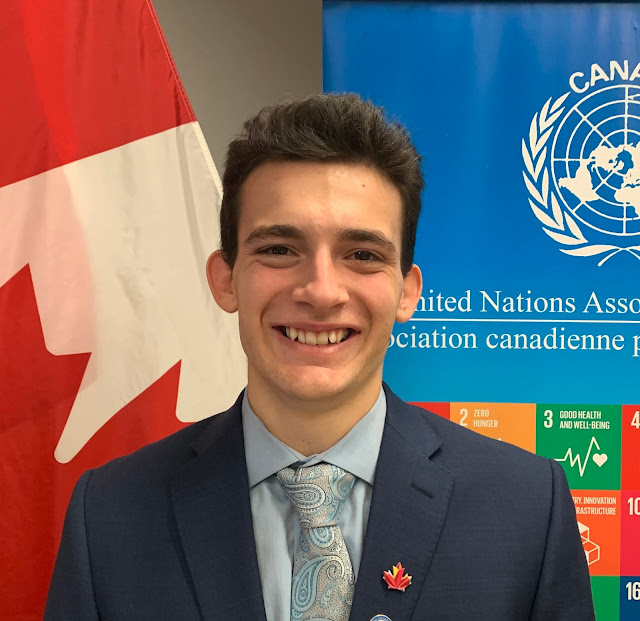HAMZA REFLECTS ON HIS INTERNSHIP WITH UNDP BANGLADESH
HAMZA REFLECTS ON HIS INTERNSHIP WITH UNDP BANGLADESH
Written by Hamza
Right now, I am sitting in a beautiful
café, writing this article in good sunlight and enjoying local roasted coffee.
It is a Friday which is the first day of the weekend here in Bangladesh. Dhaka,
the capital city is where I am situated, and has become the hub for both the
development sector and the financial market. The major banks, the textile
industry owners and the governance institutions are all in close proximity. My
work has been dynamic, the experience phenomenal. Through the cultural
challenges and shifting expectations, I have become more resilient, much like
Bangladesh. The history of this country is inspiring, with all the setbacks it
faces; natural disasters, democratic challenges and the world’s fastest growing
refugee crisis, Bangladesh continues to juggle towards a middle-income economy.
Approximately five times the population of Canada (163 M), the country is
strategically situated on the border of South and Southeast Asia, making its
foreign policy and economic ties with neighboring countries an important aspect
of understanding its present and future. The reason I chose to come to Dhaka
was twofold, learning the intricacies of the development sector and
understanding the common challenges that South Asian countries are facing. This
is why I am here as a Junior Professional Consultant (JPC), serving at UNDP
Bangladesh.
Democratic
Governance
My work started in the Democratic
Governance cluster at UNDP, working towards building Peace, Justice and Strong
Institutions, commonly known as SDG 16. For an international relations
background, this was my calling. My team serves the Prime Minister's Office,
works with the Supreme Court and strengthens the Parliament - all areas of
great interest and experience. I am also working with the Anti-Corruption
Commission of Bangladesh and have contributed to a country-wide awareness
campaign on December 9th, 2017. Reflecting on my first three months,
there was a lot to learn about the UN system, the mandate of my agency, the
specific work of my cluster, the people involved and most importantly the work
itself. The engagements have been rewarding and I have met many inspiring
people in the diplomatic community.
Then arrived the Rohingya refugee crisis on
August 25, 2017. The entire world watched as Myanmar conducted its brutal
campaign against the Rohingya people and the Government of Bangladesh responded
by opening its border and river crossing for the masses to arrive. Over the
first 5 weeks, approximately 500,000 new arrivals entered Cox’s Bazar. The
numbers are astounding and the international community began its media coverage
and emergency response immediately. As a Canadian and humanitarian, I knew that
my time to act was now. Early in high school, I learned about the hardships
faced by a Canadian General who served in the UN peacekeeping mission in Rwanda
in 1994. Romeo Dallaire has always been an inspiration for my willingness to
participate in humanitarian efforts, because even the smallest of acts can help
a persecuted people immensely. When I learned that the UN Human Rights
Commissionaire had labelled this as an “classic case of ethnic cleansing,” I
knew I had to help. Being in the Country Office my role was policy level, but
equally important for long term development. I asked the right people to be
involved with our Rohingya refugee crisis response and started helping with an
assessment being conducted to understand the situation. As a research
assistant, I provided useful information to our consultants that was used to
understand the economy and political implications in this region. My database
then called for an engagement on a more historic project, an impact assessment
on Rohingya crisis in Bangladesh. This was conducted through various
consultations, visits to Cox’s Bazar and strategically connecting the dots in
an environment where strong and credible data is not found in abundance. We had
to navigate through the stories and tell the tale that may well be the very
first of its kind and will serve as a strategic document in long term
development projects. It will also lay out expert recommendations and areas of
intervention for the government and UN. It was a high-level assessment and I
was one of the youngest in the rooms, this experience has defined my work in
Bangladesh. I am grateful for the leaders who recognized my passion and allowed
me to work in this capacity, and I hope to continue serving in this crisis
where I can.
I am still exploring my next steps as the
crisis continues and will be visiting Cox’s Bazar to see the humanitarian
response in more detail. I am thinking of joining the long-term efforts in this
cause and serving the Rohingya and people of Bangladesh during this massive
refugee situation. I would like to thank the IDDIP program for providing the
channel to allow my participation. I would say that it was luck that allowed me
to be present here during this time and my passion to engage with various areas
at UNDP allowed me to diversify and define my experience. Thank you UNA-Canada - I am
grateful to all the people involved in my journey so far who have supported my
development career and future aspirations.
I hope to take these lessons and apply them
to a noble cause in the future.





nicce
ReplyDelete